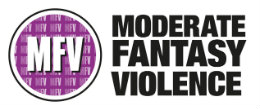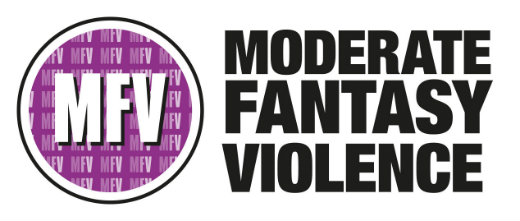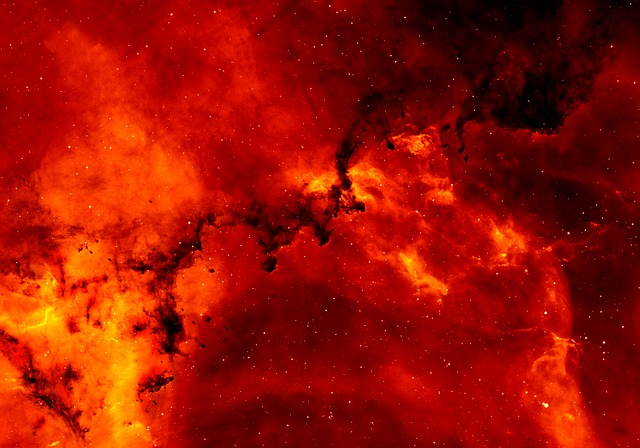This could be sci-fi’s big moment. Denis Villeneuve is working on a star studded adaptation of Frank Herbert’s classic science fiction novel Dune, and Netflix recently dropped a sci-fi anthology show from David Fincher called Love, Death and Robots.
I loved Villeneuve’s films Arrival and Blade Runner 2049, and I’m very excited for his big screen adaptation of one of the greatest science fiction novels of all time. Could this be the beginning of a new trend? Could sci-fi novel adaptations unseat superheroes from their position as the overlords of cinema? If so, what other epic sci-fi novels would make great films? I have a few ideas:
Ancillary Justice by Ann Leckie
Ancillary Justice could be one of the most decorated science fiction novels of all time, winning the Clarke, Hugo and Nebula awards in the year it was released. The story follows Breq, who used to be the AI of a vast warship called Justice of Toren in the army of the Imperial Radch, but is now trapped in the body of a single ancillary. Angry about this, Breq is seeking revenge against the Radch’s Emperor, Anaander Mianaai, for the destruction of her body and the crew that she loved.
This book has a great plot that follows the events leading up to the destruction of Justice of Toren and then Breq’s quest for revenge. There is a lot of imagination in Leckie’s writing, such as how Breg/Justice of Toren collects songs, and there is a great twist in the plot. This novel has all the hallmarks of a great story: a character wronged, a search for revenge, unlikely allies and twists along the way. It would make a great film.
Consider Phlebas by Iain M. Banks
Banks’s novels are towering accomplishments of science fiction and when I first read his work, it changed how I saw the genre. This adaptation is possibly happening as Amazon have bought the rights to Banks’s first sci-fi novel and it’s about time Banks’s genius was more widely recognised.
In the far future, humans live in the anarchistic, autonomous utopia of the Culture, a society without laws, currency, property or leaders where everything is run by super intelligent AIs known as Minds. However, all is not perfect in the Culture as they are currently at war with the Idirans, who are religious fanatics bent on stopping the Culture’s meddling with other civilizations.
Banks’s signature was coming up with bizarre and unusual sci-fi concepts and his novel is filled with them, from the giant Culture General System Vehicles that people live in, to violent cults like the Eaters (once you’ve read that chapter you don’t forget it) to the giant underground railway of the climax of the novel. The protagonist of Consider Phlebas is a shape changer so I’m uncertain as to how this would work with having one actor starring in the role. However, as a huge Banks fan, I want to see more of his work adapted.
A Fire Upon The Deep by Vernor Vinge
In the far future, a galaxy-wide battle rages between intelligent life and the Blight, part computer virus, part psychic being from beyond space and time. This is the stuff that epic science fiction is made from. When humanity finds a lost five-billion-year-old data archive beyond the edge of the galaxy, they think they have stumbled across ancient knowledge, but the older computers are actually a prison for the all-consuming Blight that takes over everything it touches, organic or machine. The only hope in the fight against it is the few humans who escape and crashland on a medieval world.
As well as the epic space battles and tense plot, what I really enjoyed about the novel is the inventive setting. Vinge has created an amazing sci-fi universe in A Fire Upon The Deep. There are lots of ingenious aliens such as the tree-like Skroderiders and the wolf-pack-like Tines (you have to read the book to get your head around this). This book would make a spectacular film.
The Long Way To A Small Angry Planet by Becky Chambers
Becky’s Chambers’s novel manages to capture the feel of Firefly despite it being set in a universe that has aliens living alongside humans. The novel takes place on the Wayfarer, a ship that is contracted to make wormholes to allow interstellar travel. The plot of the novel follows the crew as they undertake a difficult contract, but what the novel is really about is the relationships between the characters, their backgrounds and cultures.
This novel is based around the idea of a found family, that very different people brought together by circumstance can form a deep emotional bond. This, and the book’s detailed characterisation, makes it an emotionally engaging story. We really feel the pain of the characters when a crew member is sick or suffering. This and the fact that the novel contains some very interesting and imaginative aliens is why it would make a great film.
Startide Rising by David Brin
A craft piloted by a few humans, some “uplifted” dolphins and a chimpanzee crashes on a strange word whilst it is being chased by an alien armada. The Earth ship is carrying a great mystery that the aliens want to possess and begin fighting amongst themselves the closer they get. This is the premise of David Brin’s Startide Rising, which is set in his Uplift Universe. The plot follows how the Earth people plot to escape while the aliens battle for the prize of the Earth ship.
This novel has a lot of characters and a multi-stranded plot that would make it possibly more suitable for an epic TV series than a film, but the huge space battles as the aliens close in on the humans would make the sort of spectacle that is perfect for the cinema. It would be amazing to see the huge cast of bizarre creatures brought to life, from the jocular dolphins to the terrifying Tandu.
If I was commissioning adaptations of science fiction novels for the cinema then these would be my top priorities as I think they would all make great films. There are many others that would work well so let me know in the comments below.
You can also listen to myself and Nick review the science fiction anthology show Love, Death and Robots in the latest episode of our podcast below:


